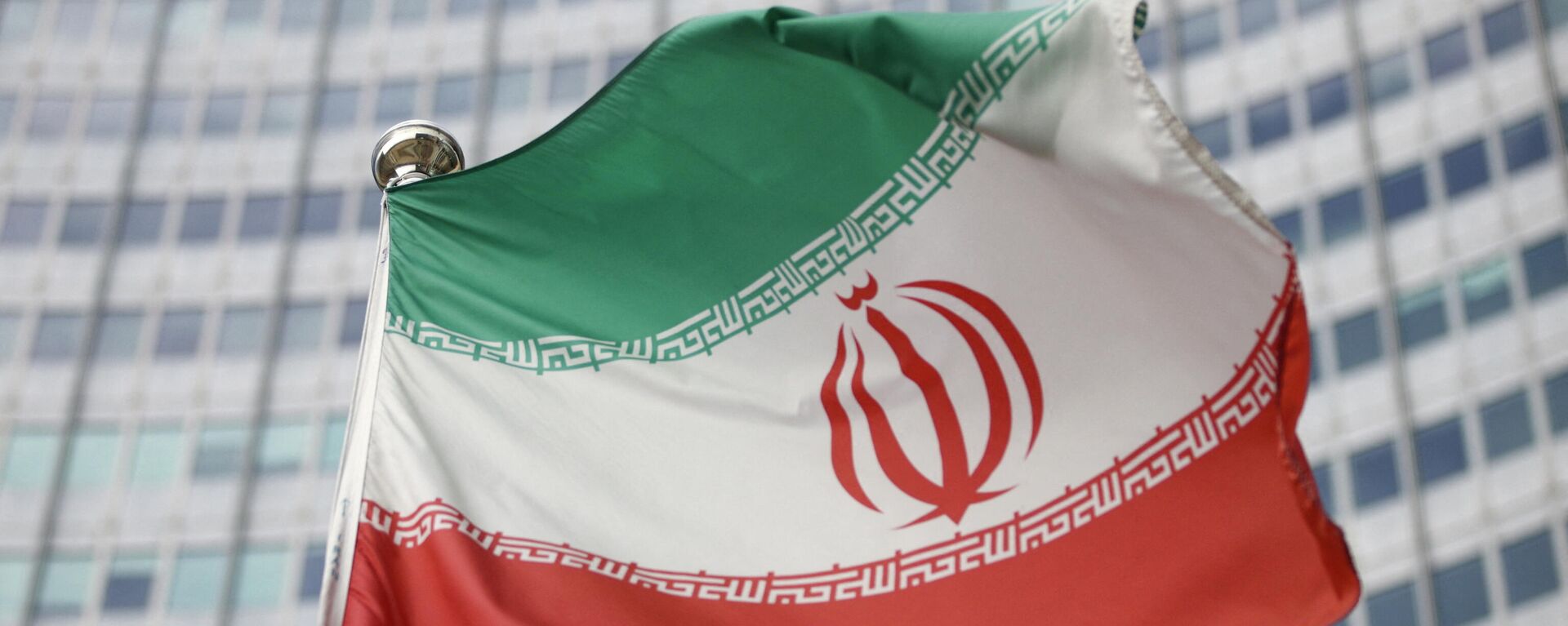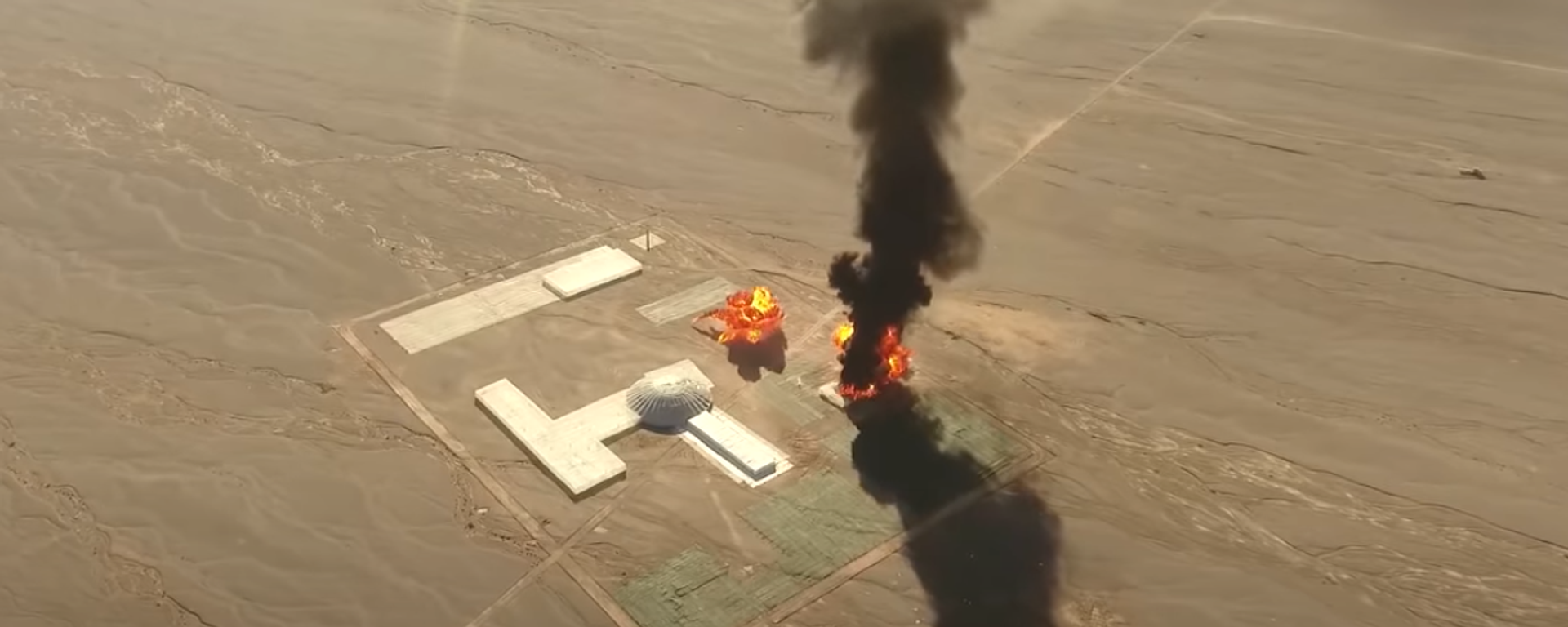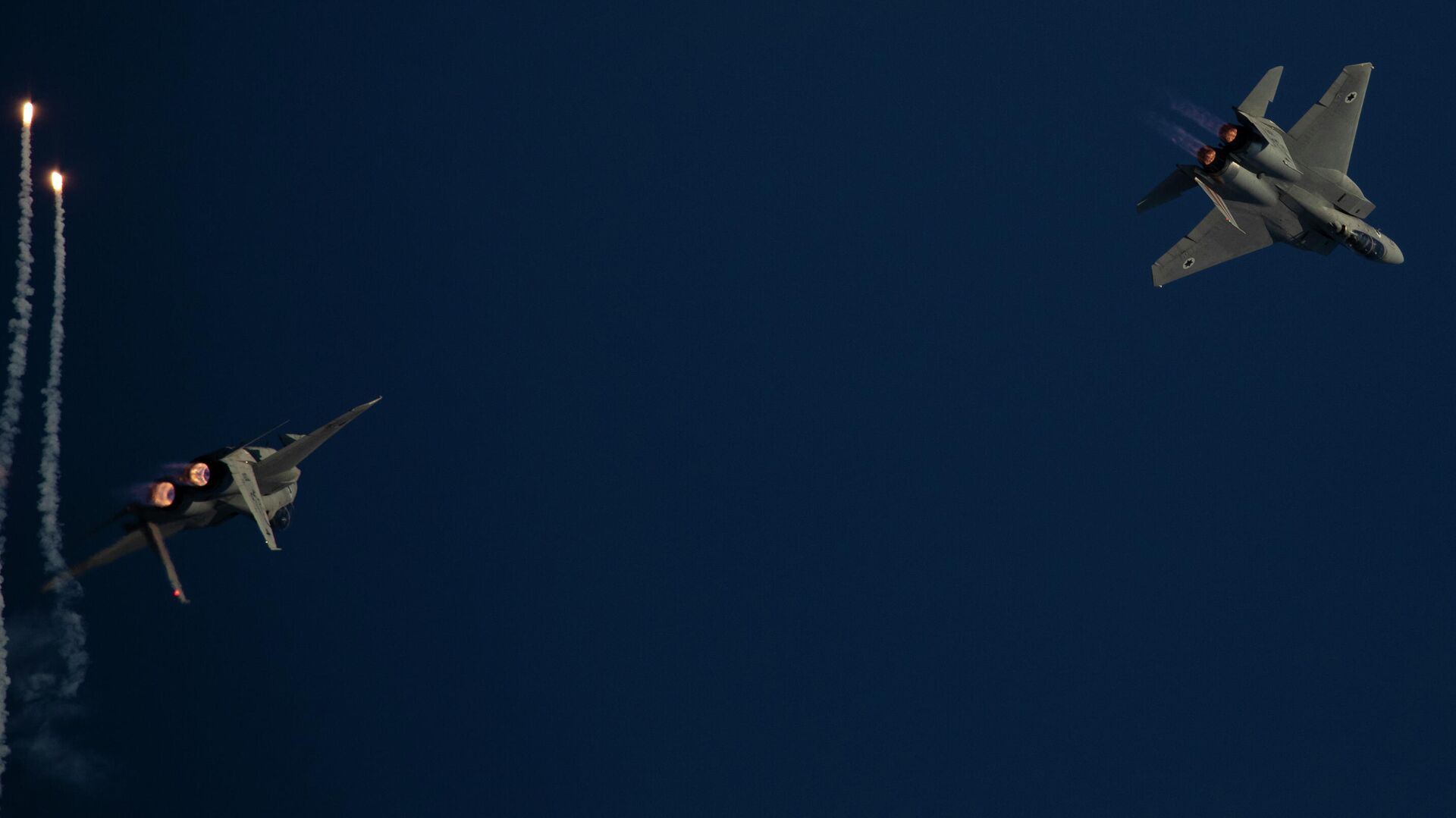https://sputnikglobe.com/20220202/israel-reportedly-holds-drills-simulating-massive-attack-on-irans-nuclear-facilities-1092688351.html
Israel Reportedly Holds Drills Simulating ‘Massive Attack’ on Iran’s Nuclear Facilities
Israel Reportedly Holds Drills Simulating ‘Massive Attack’ on Iran’s Nuclear Facilities
Sputnik International
A senior US official warned Monday that there were only “a handful of weeks left” to return to the Iran nuclear deal before Washington would consider it... 02.02.2022, Sputnik International
2022-02-02T13:38+0000
2022-02-02T13:38+0000
2023-01-15T17:25+0000
iran
drills
israel
https://cdn1.img.sputnikglobe.com/img/07e5/0a/13/1090025116_0:435:2867:2047_1920x0_80_0_0_3aae475df4f13f0cf43bcf7f26e66849.jpg
The Israeli Air Force conducted large-scale drills over the Mediterranean last month involving several dozen jets and simulating a “massive attack” against Iran’s nuclear programme, Israel’s Kan broadcaster has reported.A US Air Force officer reportedly observed the exercises, with the Kan broadcaster treating this development as evidence of a "shift" in Washington’s approach to the Iranian nuclear programme.The drill was the second major Israeli aerial exercise taking place in January, with the IAF and US forces stationed in the Middle East completing Desert Falcon, a series of joint training exercises simulating airstrikes and dogfights, in the middle of the month.This week, Israel indicated that the Israeli Navy would be deployed alongside US forces during "International Maritime Exercise 2022," an 18-day naval training event in the Persian Gulf, the Gulf of Oman, the Red Sea and the northern Indian ocean involving forces from the US 5th Fleet and "over 60 partner countries." Iran has warned repeatedly that it considers Gulf maritime security a matter for regional countries, and has demanded that “outsider” powers like the US and Israel stay out.Nuclear TensionsIsraeli officials have said repeatedly that Tel Aviv will not be bound by any international agreements on the Iran nuclear deal – including the ongoing Vienna negotiations on a return to the Joint Comprehensive Plan of Action (JCPOA), the landmark 2015 treaty which committed Iran to reduce its enrichment and stockpiling of enriched uranium in exchange for the easing of Western sanctions. Washington unilaterally pulled out of the JCPOA in 2018, and the Biden administration has been negotiating with Iran on its restoration. US officials have warned however that the talks “can’t go on forever because of Iran’s nuclear advances” and have suggested that only “weeks” remain for a deal to be reached.Under the "Begin Doctrine," named after former Israeli Prime Minister Menachem Begin, Israel reserves itself the right to attack militarily any Middle Eastern nation it believes may be building or planning to build a nuclear weapon. Tel Aviv has implemented this doctrine twice, against Iraq in 1981 and then against Syria in 2007, and has allegedly used it to murder Iranian nuclear scientists and conduct sabotage operations against Iran’s peaceful nuclear energy programme.Iran vocally denies that it is pursuing a nuclear weapon, and has accused the international community of double standards in its approach to Israel’s own suspected nuclear weapons arsenal, which the Jewish State neither confirms nor denies possessing in a policy known as ‘deliberate ambiguity.’Last year, Israel set aside a special $1.5 billion fund from its $19.2 billion defence budget (over $3 billion of which was subsidized by the US) to prepare for possible strikes against Iran’s nuclear facilities. Iran has warned that Tel Aviv should instead set aside “tens of thousands of billions of dollars” to repair damage caused by Tehran’s “shocking response” in the event of aggression.In December, Iran conducted a drone and missile strike against a target meant to simulate the Shimon Peres Negev Nuclear Research Center – the suspected birthplace of Israel’s nukes, ostensibly in a message to Tel Aviv not to start any trouble.Last month, former Israeli national security advisor Chuck Freilich warned that even if Israel did manage to strike and destroy Iran’s nuclear facilities, the Iranians would be able to quickly rebuild, and would be certain to carry out potentially devastating reprisal attacks against Israeli cities in retaliation. For this reason, Freilich suggested that a US return to the JCPOA was the “best of the bad options” for Israel.
https://sputnikglobe.com/20220201/only-handful-of-weeks-left-before-jcpoa-return-deemed-impossible-senior-us-official-claims-1092647736.html
https://sputnikglobe.com/20211226/clip-shows-iranian-missile-attack-on-target-that-looks-suspiciously-similar-to-israeli-nuclear-1091817000.html
iran
israel
Sputnik International
feedback@sputniknews.com
+74956456601
MIA „Rosiya Segodnya“
2022
News
en_EN
Sputnik International
feedback@sputniknews.com
+74956456601
MIA „Rosiya Segodnya“
Sputnik International
feedback@sputniknews.com
+74956456601
MIA „Rosiya Segodnya“
iran, drills, israel
Israel Reportedly Holds Drills Simulating ‘Massive Attack’ on Iran’s Nuclear Facilities
13:38 GMT 02.02.2022 (Updated: 17:25 GMT 15.01.2023) A senior US official warned Monday that there were only “a handful of weeks left” to return to the Iran nuclear deal before Washington would consider it impossible to do so. Israel has indicated that it would reserve the “freedom of action” for possible strikes against the Islamic Republic regardless of whether any deal was reached.
The Israeli Air Force conducted large-scale drills over the Mediterranean last month involving several dozen jets and simulating a “massive attack” against Iran’s nuclear programme, Israel’s Kan broadcaster has
reported.
According to the report, the jets practised a number of scenarios, including long-range strikes, aerial refuelling and manoeuvres to evade anti-aircraft missiles.
A US Air Force officer reportedly observed the exercises, with the Kan broadcaster treating this development as evidence of a "shift" in Washington’s approach to the Iranian nuclear programme.
The drill was the second major Israeli aerial exercise taking place in January, with the IAF and US forces stationed in the Middle East completing
Desert Falcon, a series of joint training exercises simulating airstrikes and dogfights, in the middle of the month.
This week, Israel indicated that the Israeli Navy would be deployed alongside US forces during "International Maritime Exercise 2022," an
18-day naval training event in the Persian Gulf, the Gulf of Oman, the Red Sea and the northern Indian ocean involving forces from the US 5th Fleet and "over 60 partner countries." Iran has warned repeatedly that it considers Gulf maritime security a matter for regional countries, and has demanded that “outsider” powers like the US and Israel stay out.
Israeli officials have said repeatedly that Tel Aviv
will not be bound by any international agreements on the Iran nuclear deal – including the ongoing Vienna negotiations on a return to the Joint Comprehensive Plan of Action (JCPOA), the landmark 2015 treaty which committed Iran to reduce its enrichment and stockpiling of enriched uranium in exchange for the easing of Western sanctions. Washington unilaterally pulled out of the JCPOA in 2018, and the Biden administration has been negotiating with Iran on its restoration. US officials have warned however that the talks “can’t go on forever because of Iran’s nuclear advances” and have suggested that only “weeks” remain for a deal to be reached.

1 February 2022, 00:20 GMT
Under the "Begin Doctrine," named after former Israeli Prime Minister Menachem Begin, Israel reserves itself the right to attack militarily any Middle Eastern nation it believes may be building or planning to build a nuclear weapon. Tel Aviv has implemented this doctrine twice, against Iraq in 1981 and then against Syria in 2007, and has allegedly used it to murder Iranian nuclear scientists and conduct sabotage operations against Iran’s peaceful nuclear energy programme.
Iran vocally denies that it is pursuing a nuclear weapon, and has accused the international community of double standards in its approach to Israel’s own suspected nuclear weapons arsenal, which the Jewish State neither confirms nor denies possessing in a policy known as ‘deliberate ambiguity.’
Last year, Israel set aside a special
$1.5 billion fund from its $19.2 billion defence budget (over $3 billion of which was subsidized by the US) to prepare for possible strikes against Iran’s nuclear facilities. Iran has warned that Tel Aviv should instead set aside “tens of thousands of billions of dollars” to repair damage caused by Tehran’s “shocking response” in the event of aggression.
In December, Iran conducted a drone and missile strike against a target meant to simulate the Shimon Peres Negev Nuclear Research Center – the suspected birthplace of Israel’s nukes, ostensibly in a message to Tel Aviv not to start any trouble.

26 December 2021, 15:40 GMT
Last month, former Israeli national security advisor Chuck Freilich
warned that even if Israel did manage to strike and destroy Iran’s nuclear facilities, the Iranians would be able to quickly rebuild, and would be certain to carry out potentially devastating reprisal attacks against Israeli cities in retaliation. For this reason, Freilich suggested that a US return to the JCPOA was the “best of the bad options” for Israel.





